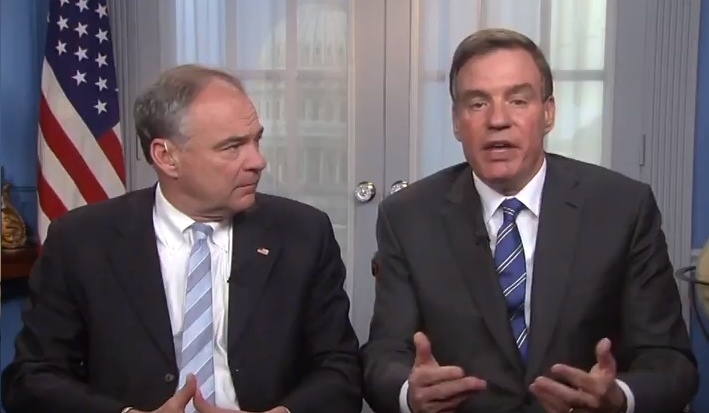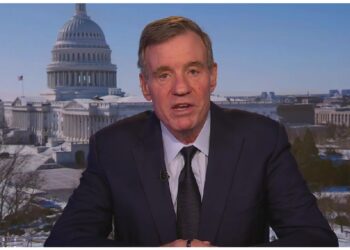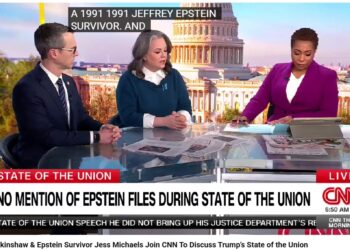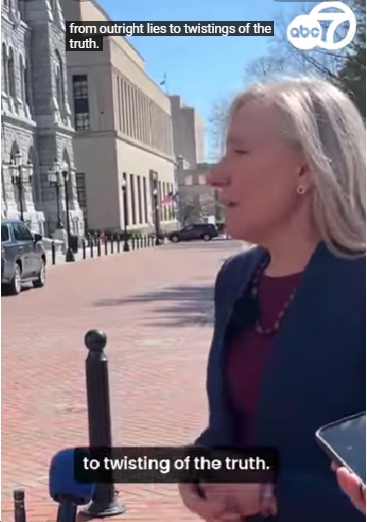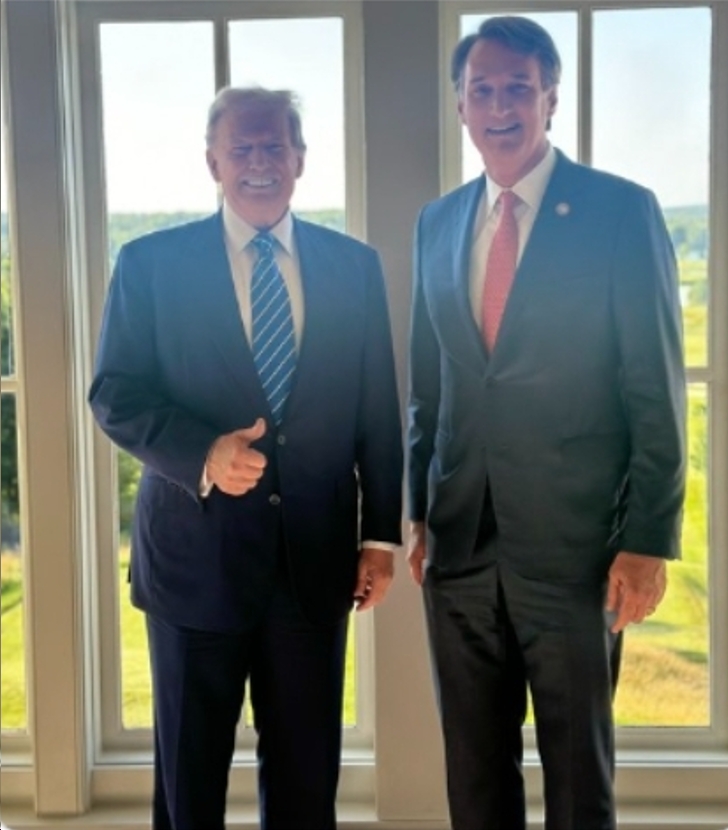From Sen. Mark Warner’s office:
United States Senate
Chairman Richard Burr • Vice Chairman Mark Warner
Senate Select Committee on Intelligence
Senate Intel Committee Releases Bipartisan Report on Russia’s Use of Social Media
The second volume in the Committee’s bipartisan Russia investigation outlines Russia’s efforts to sow discord during 2016 U.S. presidential election
WASHINGTON, D.C. – Today, Senate Select Committee on Intelligence Chairman Richard Burr (R-NC) and Vice Chairman Mark Warner (D-VA) released a new report titled, “Russia’s Use of Social Media.” It is the second volume released in the Committee’s bipartisan investigation into Russia’s attempts to interfere with the 2016 U.S. election.
The new report examines Russia’s efforts to use social media to sow societal discord and influence the outcome of the 2016 election, led by the Kremlin-backed Internet Research Agency (IRA). The analysis draws on data provided to the Committee by social media companies and input from a Technical Advisory Group comprising experts in social media network analysis, disinformation campaigns, and the technical analysis of complex data sets and images to discern the dissemination of disinformation across social media platforms.
Statement from Chairman Burr:
“Russia is waging an information warfare campaign against the U.S. that didn’t start and didn’t end with the 2016 election. Their goal is broader: to sow societal discord and erode public confidence in the machinery of government. By flooding social media with false reports, conspiracy theories, and trolls, and by exploiting existing divisions, Russia is trying to breed distrust of our democratic institutions and our fellow Americans. While Russia may have been the first to hone the modern disinformation tactics outlined in this report, other adversaries, including China, North Korea, and Iran, are following suit.
“Any solution has to balance America’s national security interests with our constitutionally-protected right to free speech. Social media companies, federal agencies, law enforcement, and Congress must work together to address these challenges, and I am grateful for the cooperation our Committee has gotten from both the Intelligence Community and the tech industry. My hope is that by continuing to shine a light on this issue, we will encourage more Americans to use social media responsibly, as discerning and informed consumers.”
Statement from Vice Chairman Warner:
“The bipartisan work that this Committee has done to uncover and detail the extent of that effort has significantly advanced the public’s understanding of how, in 2016, Russia took advantage of our openness and innovation, exploiting American-bred social media platforms to spread disinformation, divide the public, and undermine our democracy. Now, with the 2020 elections on the horizon, there’s no doubt that bad actors will continue to try to weaponize the scale and reach of social media platforms to erode public confidence and foster chaos. The Russian playbook is out in the open for other foreign and domestic adversaries to expand upon – and their techniques will only get more sophisticated.
“As was made clear in 2016, we cannot expect social media companies to take adequate precautions on their own. Congress must step up and establish guardrails to protect the integrity of our democracy. At minimum, we need to demand transparency around social media to prevent our adversaries from hiding in its shadows. We also need to give Americans more control over their data and how it’s used, and make sure that they know who’s really bankrolling the political ads coming across their screens. Additionally, we need to take measures to guarantee that companies are identifying inauthentic user accounts and pages, and appropriately handling defamatory or synthetic content. It’s our responsibility to listen to the warnings of our Intelligence Community and take steps to prevent future attacks from being waged on our own social media platforms.”
The Committee has held five open hearings on Russia’s use of social media, including a September 2018 open hearing with Facebook’s Chief Operating Officer Sheryl Sandberg and Twitter’s Chief Executive Officer Jack Dorsey. In December 2018, the Committee released two independent analyses of IRA activity, produced by New Knowledge and Graphika and the University of Oxford.
The Committee released the first volume of its Russia investigation in July 2019. You can read, “Volume I: Russian Efforts Against Election Infrastructure,” here.
You can read, “Volume II: Russia’s Use of Social Media,” here.
Key Findings and Recommendations:
- The Committee found that the IRA sought to influence the 2016 U.S. presidential election by harming Hillary Clinton’s chances of success and supporting Donald Trump at the direction of the Kremlin. The Committee found that IRA social media activity was overtly and almost invariably supportive of then-candidate Trump to the detriment of Secretary Clinton’s campaign.
- The Internet Research Agency’s (IRA) targeting of the 2016 U.S. election was part of a broader, sophisticated, and ongoing information warfare campaign designed to sow discord in American politics and society. While the IRA exploited election-related content, the majority of its operations focused on exacerbating existing tensions on socially divisive issues, including race, immigration, and Second Amendment rights.
- The Committee found the IRA targeted African-Americans more than any other group or demographic. Through individual posts, location targeting, Facebook pages, Instagram accounts, and Twitter trends, the IRA focused much of its efforts on stoking divisions around hot-button issues with racial undertones.
- The IRA engaged with unwitting Americans to further its reach beyond the digital realm and into real-world activities. For example, IRA operatives targeting African-Americans convinced individuals to sign petitions, share personal information, and teach self-defense courses. Posing as U.S. political activists, operatives sought help from the Trump Campaign to procure campaign materials and to organize and promote rallies.
- The Committee found IRA activity increased, rather than decreased, after Election Day 2016. Analysis of IRA-associated accounts shows a significant spike in activity after the election, increasing across Instagram (238 percent), Facebook (59 percent), Twitter (52 percent), and YouTube (84 percent). Researchers continue to uncover IRA-associated accounts that spread malicious content.
- The Committee recommends social media companies work to facilitate greater information sharing between the public and private sector. Because information warfare campaigns are waged across a variety of platforms, communication between individual companies, government authorities, and law enforcement is essential for fully assessing and responding to them. Additionally, social media companies do not consistently provide a notification or guidance to users who have been exposed to inauthentic accounts.
- The Committee recommends Congress consider ways to facilitate productive coordination and cooperation between social media companies and relevant government agencies. Congress should consider whether any existing laws may hinder cooperation and whether information sharing should be formalized. The Committee also recommends Congress consider legislation to ensure Americans know the source behind online political advertisements, similar to existing requirements for television, radio, and satellite ads.
- The Committee recommends the Executive Branch publicly reinforce the danger of attempted foreign interference in the 2020 election. The Executive Branch should establish an interagency task force to monitor foreign nations’ use of social media platforms for democratic interference and develop a deterrence framework. A public initiative to increase media literacy and a public service announcement (PSA) campaign could also help inform voters.
- The Committee recommends candidates, campaigns, and other public figures scrutinize sourcing before sharing or promoting new content within their social media network. All Americans should approach social media responsibly to prevent giving “greater reach to those who seek to do our country harm.” The Committee recommends that media organizations establish clear guidelines for using social media accounts as sources to prevent the spread of state-sponsored disinformation.


